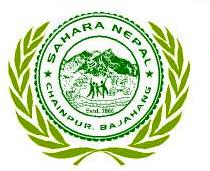PBA is a tool which analyses the state of budget to assess whether the budget policy and priorities reflect interests of the poorest of the poor and marginalized. A characteristic of PBA work is that it serves to demystify the often highly technical language of official budgets and to open up to public scrutiny the often opaque budgetary process. Budget analysis is closely linked with the process of budget formulation, as it is aimed at generating debate on the national, regional and local levels budget and at influencing the budget that is ultimately approved. Likewise, Participatory Expenditure Tracking System (PETS) is a tool for qualitative exercise that tracks out the flow of the resources from the origin (i.e. from where the resources is distributed) to the destination (i.e. where the resources is utilized or used).The purpose of PETS is to track fund and materials from the origin to local providing agency in order to determine how much of the originally allocated resources reach at service delivery level. This tool synchronizes with policy objectives, inputs, outputs and outcome. It helps to assess whether public organizations have been spending in accordance with the financial rules and regulation. Sahara Nepal, Bajhang as a lead organization tested these tools in Kada and Rilu VDCs of Bajhang district under CECI/PRAN project in the financial support of world bank for eight months.
The objectives for testing these tools were:
- To Improve information sharing and public understanding of the budget;
- To increase pro-poor allocations;
- To improve targeting of funds for vulnerable groups, including women and children;
- To track expenditures;
- To enable vulnerable groups, such as women, Dalit, children and poorest of the poor people to claim their rights and entitlements.
Project results:
- Rs. 192,000.00 allocated for women empowerment and Rs. 72,000.00 for honoring senior citizens had been misappropriated by the service provider at Kanda VDC and the service users were unknown about it. PETS in Kanda found and revealed the fact and women and senior citizen finally received it by claiming it as it was duly allocated for them.
- Orientation to 36 volunteers on PETS process and their involvement in the PETs increased their knowledge and skill on PETS.
- Altogether 196 respondents were empowered in the PETS process to make VDC secretary more accountable and responsible towards entitlement at local level and involved in PETS process.
- Directly 250 local people and more than 1500 people indirectly benefited by participating in different orientation programs, trainings, interface meetings, finding dissemination program, FM Radio programs on social accountability tools and its use for improving basic service delivery at local level.
Project achievements:
- Better understanding among stakeholders about their rights and entitlements and how service providers abuse the budget allocated to them.
- Increased level of empowerment and involvement of concerned groups in planning, budgeting and monitoring process of the project.
- Strengthened social mobilization and enhanced capacity of community in participatory development ensured social inclusion in planning, policy and program implementation in the two VDCs.
- Local capacity development on PBA and PETS through training to volunteers and their engagement in PBA and PETs process.
- Finding of PETS and PBA has promoted the use of social accountability tools and mechanisms by the citizen and citizen groups, civil society organizations, local government official and service provider in order to make basic service delivery more effective, efficient, responsive and accountable.
- Improved public financial management in the two VDCs.
